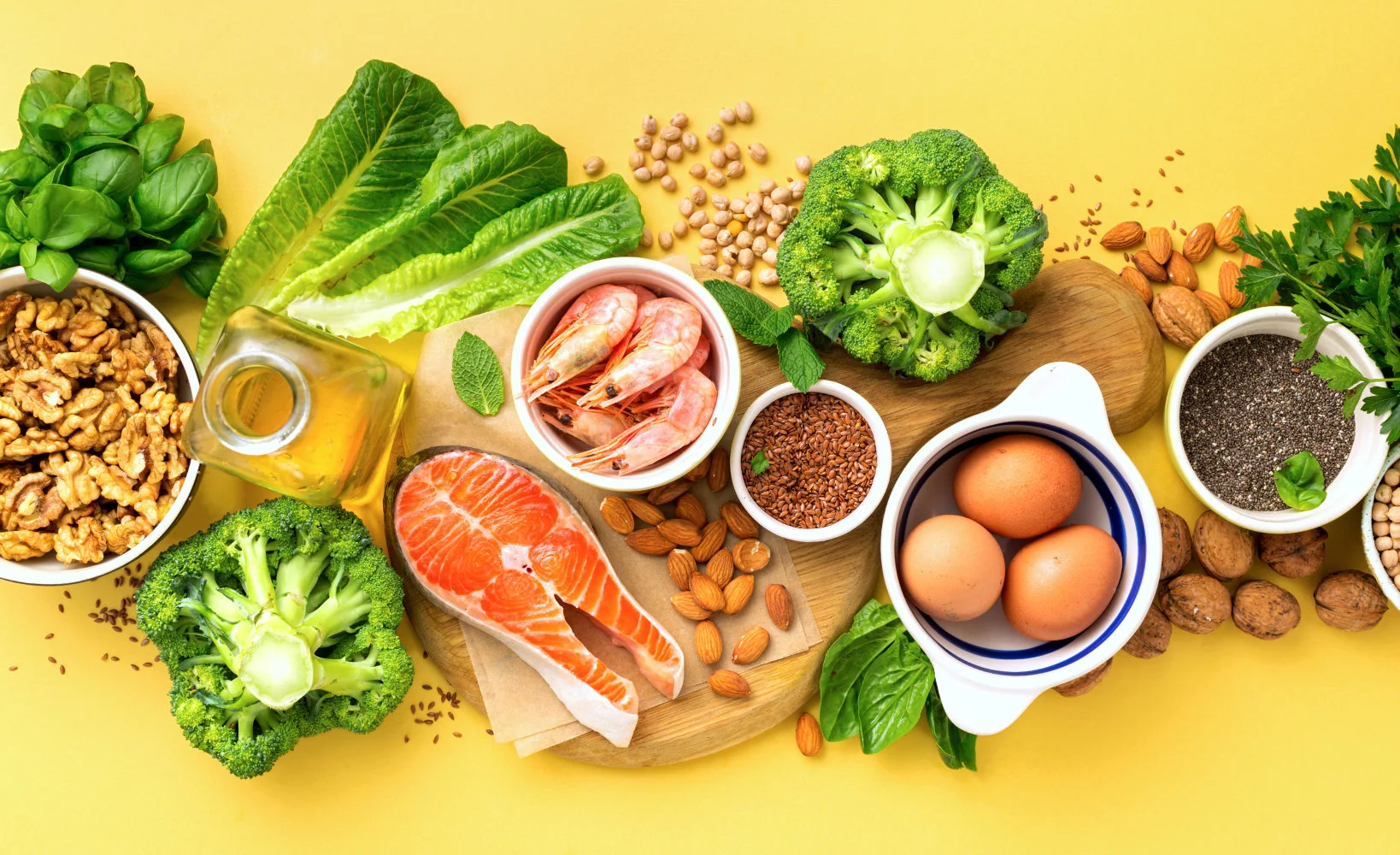Maintaining a balanced diet is essential for overall health, energy, and well-being. Incorporating a variety of nutrient-dense foods into daily meals supports body functions, boosts immunity, and enhances mood. This guide outlines healthy foods to include in your daily diet, focusing on diversity and nutritional balance.
Fruits and Vegetables
Fruits and vegetables are the cornerstone of a healthy diet, offering vitamins, minerals, and antioxidants.
- Leafy Greens: Spinach, kale, and Swiss chard are rich in vitamins A, C, and K. They can be added to salads, smoothies, or sautéed as a side dish.
- Berries: Blueberries, strawberries, and raspberries are packed with antioxidants and fiber. Enjoy them as snacks, in yogurt, or blended into smoothies.
- Cruciferous Vegetables: Broccoli, cauliflower, and Brussels sprouts provide fiber and cancer-fighting compounds. Roast or steam them to retain nutrients.
- Citrus Fruits: Oranges, grapefruits, and lemons are high in vitamin C, supporting immune health. They can be eaten fresh or juiced.
Whole Grains
Whole grains are essential for providing sustained energy and supporting digestive health.
- Oats: A great source of fiber and protein, oats are perfect for breakfast. They can be prepared as oatmeal or used in baking.
- Quinoa: High in protein and all nine essential amino acids, quinoa is a versatile grain that can be used in salads, bowls, or as a side dish.
- Brown Rice: This whole grain is rich in fiber and B vitamins. It can accompany stir-fries, curries, or bean dishes.
- Whole Wheat Bread: Opt for whole wheat over refined white bread to benefit from more fiber and nutrients.
Lean Proteins
Proteins are vital for muscle repair, growth, and overall health.
- Chicken and Turkey: These lean meats are high in protein and low in fat. Grilling or baking are healthy preparation methods.
- Fish: Salmon, mackerel, and sardines provide omega-3 fatty acids and protein. Aim to include fish in the diet at least twice a week.
- Legumes: Beans, lentils, and chickpeas are excellent plant-based protein sources. They can be added to soups, salads, and stews.
- Eggs: Rich in protein and essential nutrients, eggs are versatile and can be prepared in various ways.
Healthy Fats
Healthy fats are crucial for brain function and overall health.
- Avocados: Packed with monounsaturated fats, avocados can be added to salads, sandwiches, or enjoyed on their own.
- Nuts and Seeds: Almonds, walnuts, chia seeds, and flaxseeds provide healthy fats and fiber. They make great snacks or toppings for yogurt and oatmeal.
- Olive Oil: Use extra virgin olive oil for cooking and dressing salads. It’s a heart-healthy option that adds flavor.
Dairy and Alternatives
Dairy products and their alternatives provide calcium and vitamin D for bone health.
- Yogurt: Rich in probiotics, yogurt supports gut health. Choose plain or Greek yogurt to avoid added sugars.
- Milk: Opt for low-fat or plant-based milks like almond or soy milk, fortified with calcium and vitamin D.
- Cheese: Enjoy in moderation, focusing on lower-fat options like cottage cheese or mozzarella.
Hydration
Staying hydrated is essential for overall health and helps maintain energy levels.
- Water: Aim to drink plenty of water throughout the day. Infusing it with fruits or herbs can add a refreshing twist.
- Herbal Teas: These are a calorie-free way to stay hydrated and can be enjoyed hot or cold.
Mindful Eating Habits
Adopting mindful eating practices enhances the enjoyment of meals and supports digestion.
- Regular Meals: Eating at consistent times helps regulate appetite and energy.
- Portion Control: Pay attention to portion sizes to avoid overeating, even with healthy foods.
- Slow Eating: Chewing thoroughly and savoring each bite aids digestion and increases satisfaction.
Foods to Limit
While focusing on healthy foods, it’s important to limit those that can hinder health.
- Sugary Snacks: Cookies, candies, and pastries offer empty calories and should be enjoyed sparingly.
- Processed Foods: High in unhealthy fats, sugars, and sodium, these contribute little nutritional value.
Conclusion
Incorporating a variety of fruits, vegetables, whole grains, lean proteins, and healthy fats into your daily diet can significantly enhance health and vitality. By making mindful choices and adopting healthy eating habits, you can enjoy a balanced and nutritious diet.
Embrace the diverse flavors and benefits of these foods, knowing they contribute to overall well-being and a healthier lifestyle. Enjoy the journey of discovering new foods and nourishing your body with the nutrients it needs.

